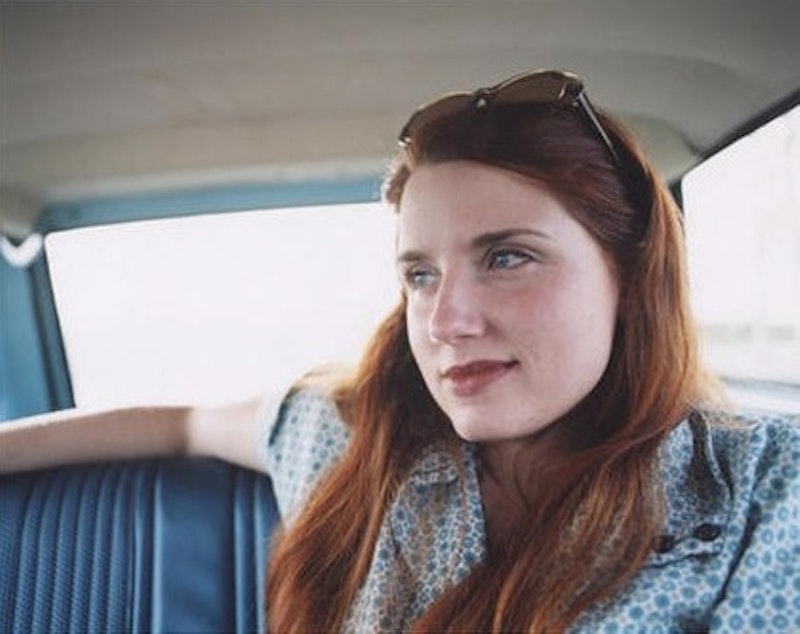Any new artist making folk or blues music faces the daunting challenge of juggling nostalgia and contemporary relevance. More often than not, attempts at pulling off this ambitious balancing act result in ill-conceived Karen Dalton impersonations and renditions of old standards that would make Dewey Cox proud. But for all of these failed efforts, a number of recent artists have succeeded in creating a modern blend of old-time music. Of these artists, M. Ward first comes to mind, followed closely by Texas native Jolie Holland.
Holland’s 2003 debut Catalpa brought accolades from critics and established musicians alike. Catalpa showed Holland at her best; with an airy voice and slowpoke folk balladry, Holland modernized an earlier tradition of music for a contemporary audience. With each successive album (Escondita in 2004 and Springtime Can Kill You in 2006), Holland broadened her musical scope to include elements of country and jazz. But while these albums showed Holland striving to develop artistically, they also suggested an artist whose sound was beginning to stagnate. Even on Springtime Can Kill You, where Holland employed a more upbeat and jazzy approach, a general feeling of fatigue pervaded the whole album. The novelty of Holland’s initial charm had begun to wear off and her songwriting was turning lockstep and formulaic; the past which Holland had once mined for inspiration was now pushing her closer and closer to parody.
Holland’s latest release, The Living and The Dead, brings a well-needed breath of fresh air to Holland’s catalogue and career. Following in the footsteps of M. Ward’s Post War, Holland crafts an album that is louder and more energetic than anything she has produced before. Supported by drums, electric guitars, and the occasion pedal steel, Holland’s new record reinvigorates her vintage sound, resulting in a more polished and lively album with appeal outside of low-key coffeehouses and cafes.
The tracks on The Living and the Dead are built on the same folk and blues foundation as her previous releases, but Holland strengthens it with a full band and newfound vigor. Album opener “Mexico City” introduces the new Jolie Holland. Over a simple chord progression, Holland stretches her voice farther than ever before. There’s a sense of urgency to her tone, and a catchy melody played by a 12 string guitar coupled with a steady drum beat drive the track forward.
Some of Holland’s overwrought themes of heartbreak are still present on the record, but the added instrumentation and her changed lyrical approach add a sense of immediacy to them. In “Palymyra,” Holland sings about waking up in a “Pit of despair/on your bed,” but instead of reacting with a tear-stained ballad like she would have in the past, Holland affirms to “Put my lipstick back on/look myself in the eye.” To her music’s benefit, Holland’s new response to heartbreak is to grab an electric guitar and make some noise.
Post War not only serves as a useful model for The Living and the Dead because the two share a similar sound, but M. Ward contributes his guitar and production skills to a number of tracks. On the album’s crowning achievement “Your Big Hands,” Ward handles lead guitar and a full band helps power a track that could easily fill a bar with out-of-shape thirtysomethings sporting stubble and western shirts. With a sound that makes you believe she was raised on Wilco’s A.M., it’s the closest Holland will probably ever come to straight alt-country. The song builds throughout until reaching a final crescendo of distortion that leaves Holland pleading, “Why do you want to break my heart?”
While The Living and the Dead is a move towards a louder and more up-tempo sound, the old Jolie Holland still retains a prominent place on the album. But whereas the down-tempo acoustic tracks that characterized her previous two releases sounded monotonous and tired, they sound brighter and more engaging mixed in with the new production. “Sweet Loving Man” is a slow, fiddle laden waltz. The fingerpicked “Fox in Its Hole” is another gem, guided by pulsing tom-toms and ornamented by electric and acoustic guitars playing off of each other. When Holland sings, “My teeth are just like razors/and sharp as the night is long,” you actually believe her. The Living and the Dead has more bite than most contemporary folk-inspired records and proves that Holland’s career is alive and well.
Jolie Holland's Folk Upgrade
With M. Ward's help (naturally), the singer-songwriter has bridged modern sounds and classic production on her latest, The Living and the Dead.

